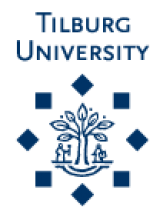European lawmakers have demanded an investigation into whether online proctoring software violates student privacy rights, arguing that it is unfair for universities to force students to use exam monitoring tools that capture their personal biometric data.
The coronavirus pandemic has spurred many universities to turn to software such as Proctorio, used by about 500 institutions globally, mainly in the US, to stop students cheating when sitting online exams at home.
But in the Netherlands, a student petition against Proctorio has gathered close to 5,000 signatures and triggered a political row.
“My concern is that the data that are collected are biometric data: faces and eyes,” said Paul Tang, a Dutch Labour Party MEP who, with a colleague, has asked the European Commission to investigate whether such online proctoring complies with the bloc’s General Data Protection Regulation (GDPR).
“If you don’t have an option [not to use online proctoring], what does consent mean? And that’s the whole idea of GDPR,” he told Times Higher Education. “You can’t switch your university.”
Proctorio works by monitoring a student through their computer’s camera and microphone to track things such as head and eye movements for suspicious behaviour, explained Thomas Fetsch, the company’s country manager for Germany.
For example, if it detected that a student was looking only at one corner of their screen, or constantly glancing down at a notepad – and if this behaviour was unusual compared with that of coursemates – the software might alert the university that it suspected the student of copying out answers.
The software can ask for “room scans”, which require students to pan around their environments with their laptop cameras. The petition against Proctorio, which focuses on its use at Tilburg University, has called these an “invasion of privacy”.
The scans are designed to stop students sticking sheets of answers out of view of the laptop camera, said Mr Fetsch. Laptop microphones might also be monitored to check that no one else is in the room helping the student, he said.
Alex Tess Rutten, chair of the Dutch Student Union, told THE that universities had turned to online proctoring “too easily”.
“There are a number of good alternatives, like speaking exams,” she said.
Students could be given a set time in which to complete an exam, after which lecturers quiz a random sample to check that they had truly understood the content and given their own answers, the Tilburg petition suggests.
Some consider online proctoring to be essential given university closures. Willem van Valkenburg, executive director of online learning at Delft University of Technology, said “online proctoring is a necessary and suitable solution in this Covid-19 situation, where the campus is closed”, because universities wanted to minimise disruptions and delays to students’ education.
Tilburg’s rector, Klaas Sijtsma, has defended the use of Proctorio, arguing that it will help to defend the value of the university’s degrees and will be used only “where it is necessary”.
But the institution’s law school has decided against using the software – a decision hailed as a victory by those petitioning against Proctorio.
Online proctoring “can be used only if the infringement of the privacy can be legitimised”, said Maurice Adams, the school’s vice-dean for education, who stressed that this was also the position of the wider university.
“We at Tilburg Law School have looked at the proposed exams and have concluded that we do not need online proctoring for our exams. Of course, the opinion of our students is very important in this regard: we have discussed the matter with them and listened carefully to their concerns,” he said.
“Every institution is grappling with this issue,” said Mr Tang. “But what I find surprising is I see universities using different options,” he explained, with some institutions providing more alternatives than others.
Concern is not confined to the Netherlands. The Australian National University has had to reassure students after they raised privacy concerns about Proctorio.
Another worry is what will happen to students’ data after they take their exam, said Ms Rutten.
Mr Fetsch said that while sound and video recordings of students taking exams were stored, only universities – not the company – were able to link these to identifying information. Data from European universities were stored in Frankfurt, he said, and had to be retained so that universities could check exam integrity at a later date.
Some US universities have given Proctorio permission to train its fraud-detection AI on datasets – such as video or audio recordings – generated when students at those institutions sat their exams, he added.
POSTSCRIPT:
Print headline: MEPs raise privacy concerns over online exam invigilation
Register to continue
Why register?
- Registration is free and only takes a moment
- Once registered, you can read 3 articles a month
- Sign up for our newsletter
Subscribe
Or subscribe for unlimited access to:
- Unlimited access to news, views, insights & reviews
- Digital editions
- Digital access to THE’s university and college rankings analysis
Already registered or a current subscriber? Login









